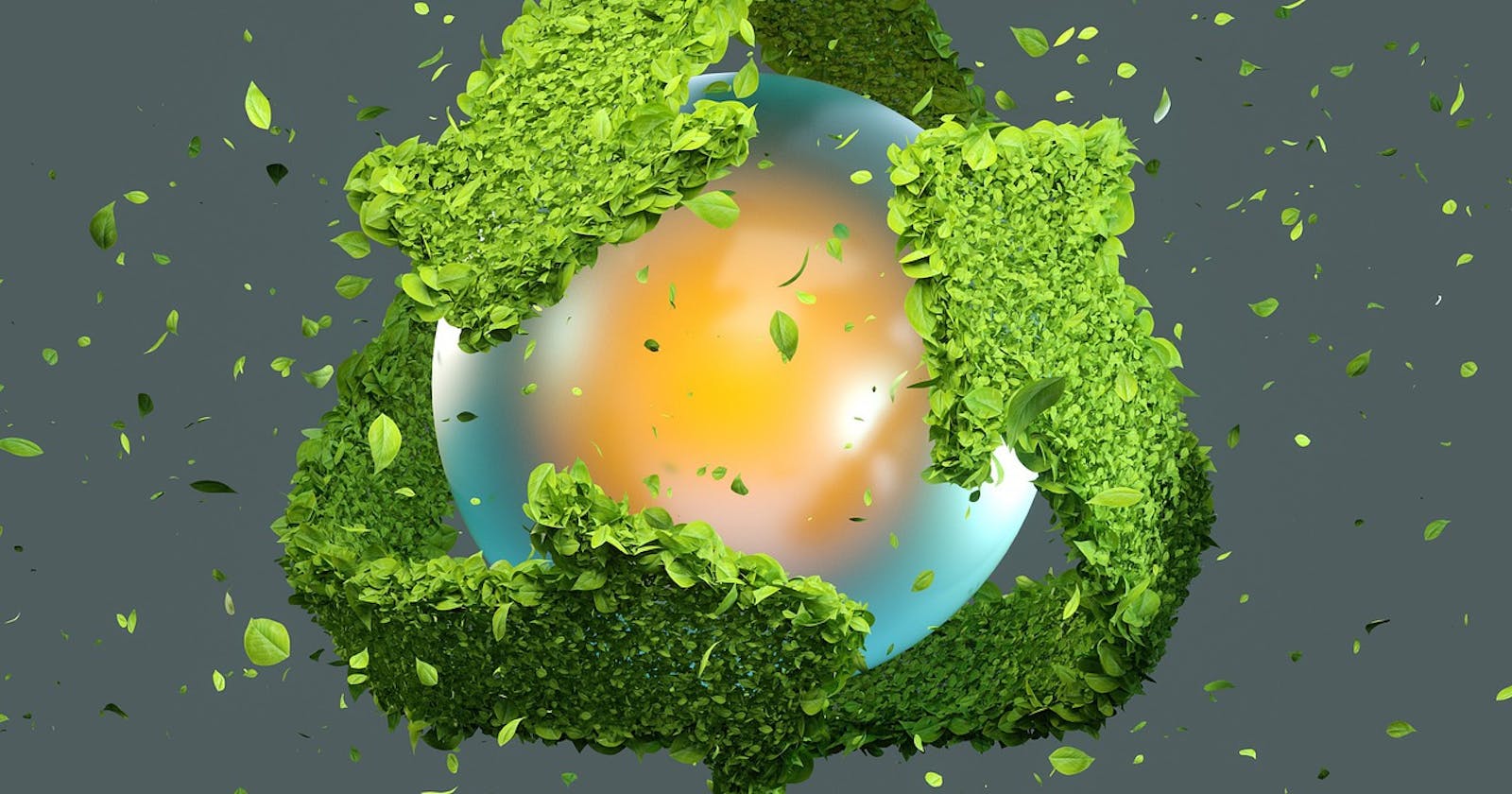INTRODUCTION.
Global waste is likely to surpass 4 billion tonnes by 2050, more than twice what it was in 2016. The quick increase may be traced back to rising urban populations and a growth in consumer culture over the last few decades, neither of which is expected to slow down very soon. Communities all over the world are turning to advanced waste management technology and solutions to reduce their impact on the environment. Before I go into the details, let me define several phrases you'll encounter throughout this article.
WHAT IS RECYCLING
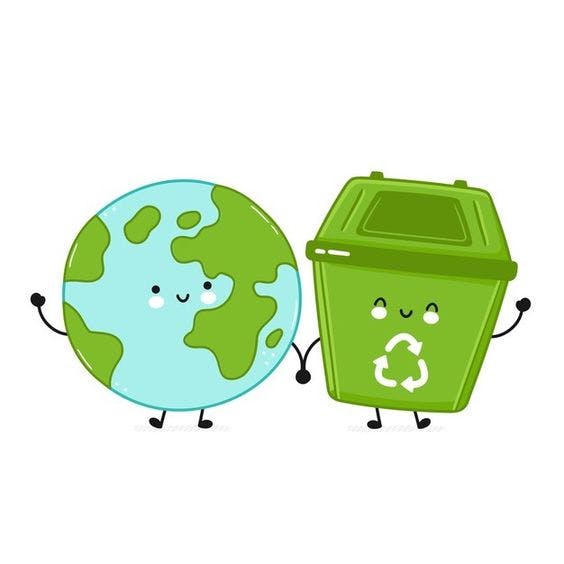
Recycling is one of the world's most misunderstood, yet critically vital, concerns today. Recycling is simply the process of reducing materials to their raw material components and then reusing these to complement or replace fresh materials in the production of a new product. Most people don't realise that recycling can also include donating old clothes to charitable organisations, reusing plastic containers to store food in the refrigerator, and many other things we already do. Materials collected on the street or delivered to a recycling facility are sorted, cleaned, broken down, and reprocessed into a wide range of consumer products and feedstocks for building materials. Recycling also saves energy and is an excellent strategy to reduce air, water, and land pollution. Furthermore, it increases the likelihood of people finding new jobs.
RECYCLING TECHNOLOGY
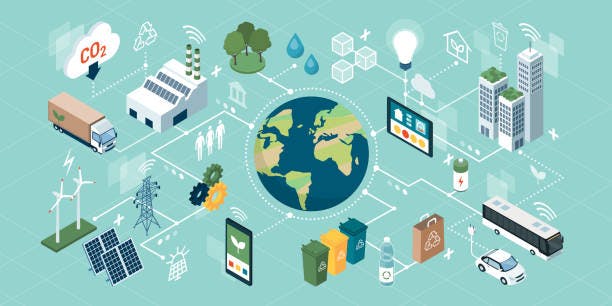
Recycling technology refers to procedures and techniques that are used to reduce solid waste by recycling unwanted resources to create new products. The collection of recycled waste, manufacturing or reprocessing of these materials into new products, and sale of these items are all fundamental steps of recycling.
WHAT IS WASTE?
Simply described, waste is an item that is discarded because its owner no longer finds it useful or necessary. Waste can be anything ranging from a small wrap of sweets to something as big as chemicals from industries. Waste can take any form (liquid, solid, or gas), although it is usually solid. The infographics below provide a more detailed overview and categorization of waste sources.
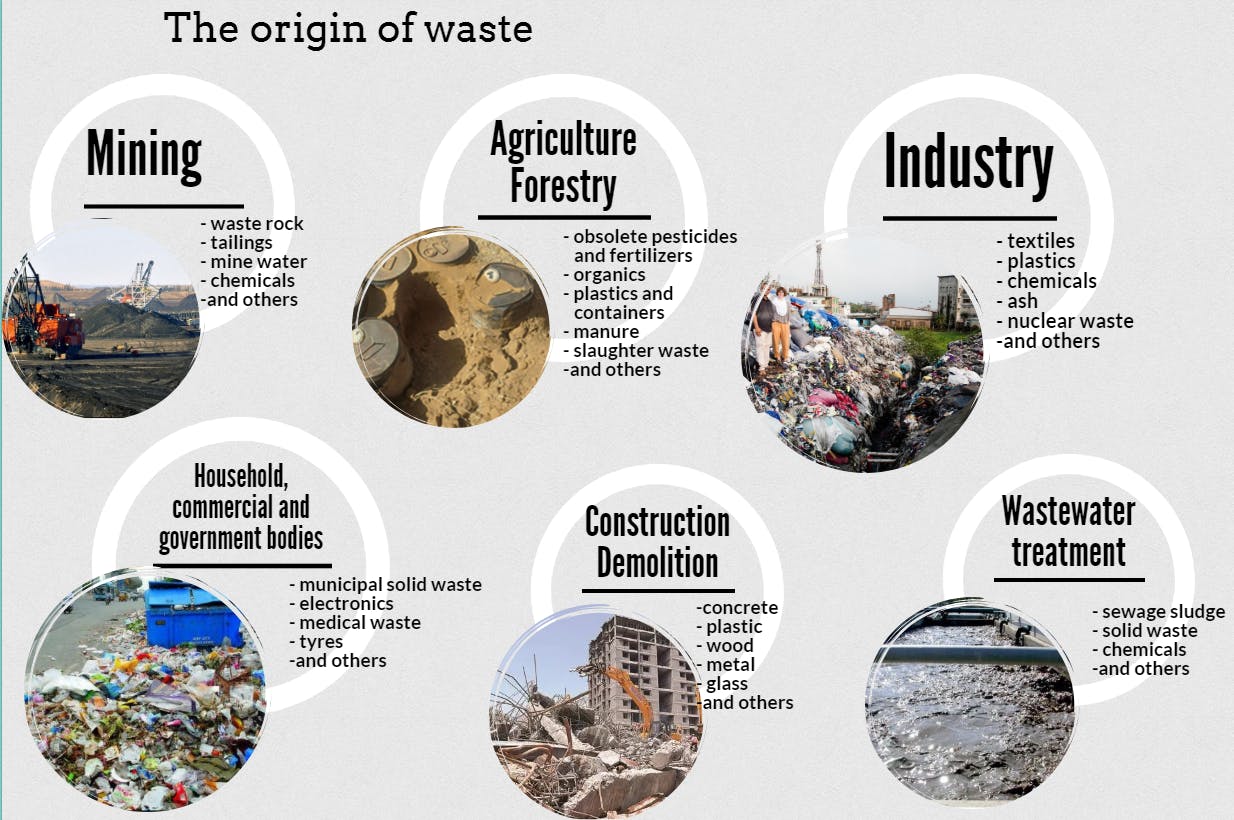 Figure 1 illustrates waste classification based on origin. Different activities generate various forms of garbage.
Figure 1 illustrates waste classification based on origin. Different activities generate various forms of garbage.
WASTE MANAGEMENT
A filthy sight awaits you if you look into the gutters of any major Nigerian city: floating cans, nylon water sachets, empty bottles, and other waste materials discarded by humans, swept there by rain, gathering and clogging the drain. Not just in Nigeria, but throughout the world. But, what is waste management? In simple terms, it is the collection, transportation, and disposal of garbage, sewage, and other waste products.
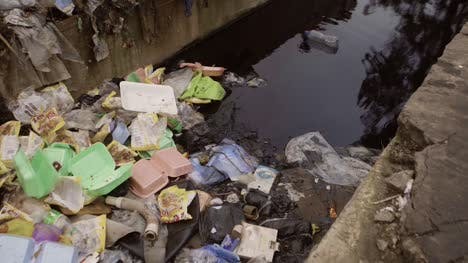 Everyone can agree that manual waste collection techniques are inefficient. Proper waste management is one of the essential services that governments as well as numerous organisations dealing with trash and maintaining a circular economy provide to citizens, and it covers all waste-related operations from origin to final disposal. One of the primary reasons for the need for proper waste management is the increase in toxic waste, which must be managed appropriately to avoid the dangers that it may create to human health and the ecosystem.
Everyone can agree that manual waste collection techniques are inefficient. Proper waste management is one of the essential services that governments as well as numerous organisations dealing with trash and maintaining a circular economy provide to citizens, and it covers all waste-related operations from origin to final disposal. One of the primary reasons for the need for proper waste management is the increase in toxic waste, which must be managed appropriately to avoid the dangers that it may create to human health and the ecosystem.
THE FUTURE OF WASTE MANAGEMENT
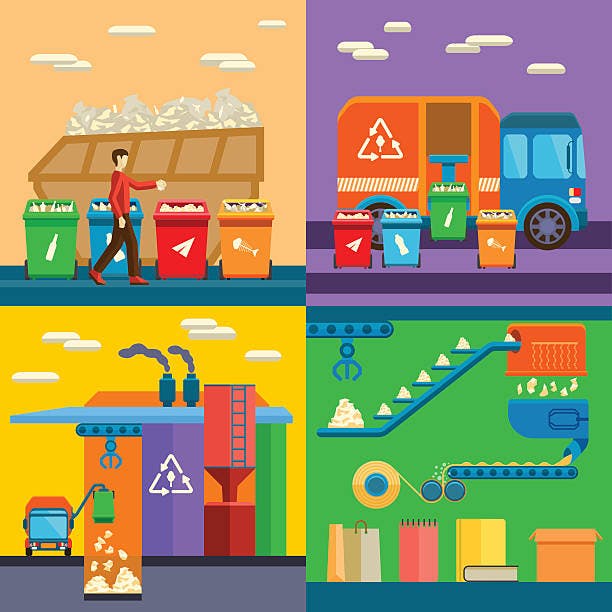
The fundamental definition of recycling is the process of converting used or undesired waste items produced by our civilization into renewable and recyclable products. Recycling reduces the overall cost of producing new products from raw materials while also lowering energy use. There are numerous products that can be recycled. To manage waste, several methods and technologies have been developed, which are together referred to as smart waste management. Any method that uses technology to make trash collection more efficient, cost-effective, and environmentally friendly is referred to as smart waste management. The majority of these systems are built with the Internet of Things (IoT), a monitoring technology that collects and tracks real-time data to aid in waste collection management and future innovation.
The world's trash problem isn't going away anytime soon, and existing waste management systems aren't designed to handle the additional trash produced by rising populations. Communities must embrace smart waste management technology that boosts efficiency, cut collection costs, and divert more trash away from landfills to help bridge the gap. With technological improvements and governmental guidance in place for recycling, mankind will eventually reduce its environmental impact and contribute to the maintenance and creation of a healthier and much more secure environment as well as new business categories.
These technologies include Smart waste bins, waste level sensors, AI recycling/waste sorting robots, garbage truck weighing mechanisms, solar-powered trash compactors, and modern landfills powered by eco-friendly, sustainable technology.
People do not always sort their trash and recyclables into the appropriate bins. Majority end up burning, which increases pollution and continues to deplete the ozone layer. Using artificial intelligence, smart waste bins automatically sort recyclables into separate compartments. This process assists recycling companies in filtering waste and refining it into new goods for consumption and reuse. Fascinate Technologies, a startup that introduced the smart waste bin in Nigeria, ensures effective waste collection, which helps to minimise improper waste disposal, prevent environmental pollution and disease spread, and promote a greener and more eco-friendly environment.
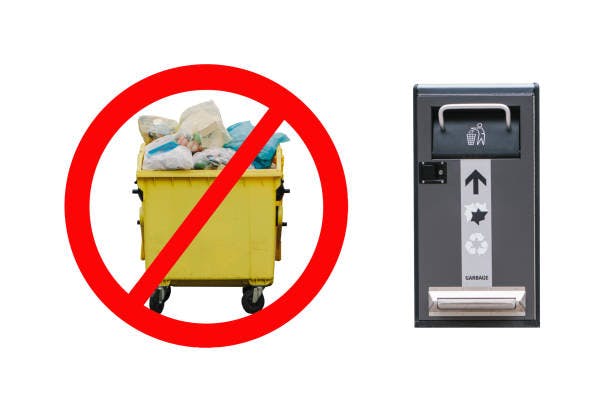 Smart Waste Bin
Smart Waste Bin
Routine waste collection services are used by homes and businesses across the country to dispose of trash. Weekly services have been around for a long time, but they are not always the most efficient option. Companies and communities can install waste level sensors in any size bins or dumpsters to help reduce unnecessary trips to and from dumpsites. These devices collect and store fill-level data, allowing collection services to predict how frequently bins need to be emptied. This also helps to prevent overflowing public containers from contaminating the surrounding area.
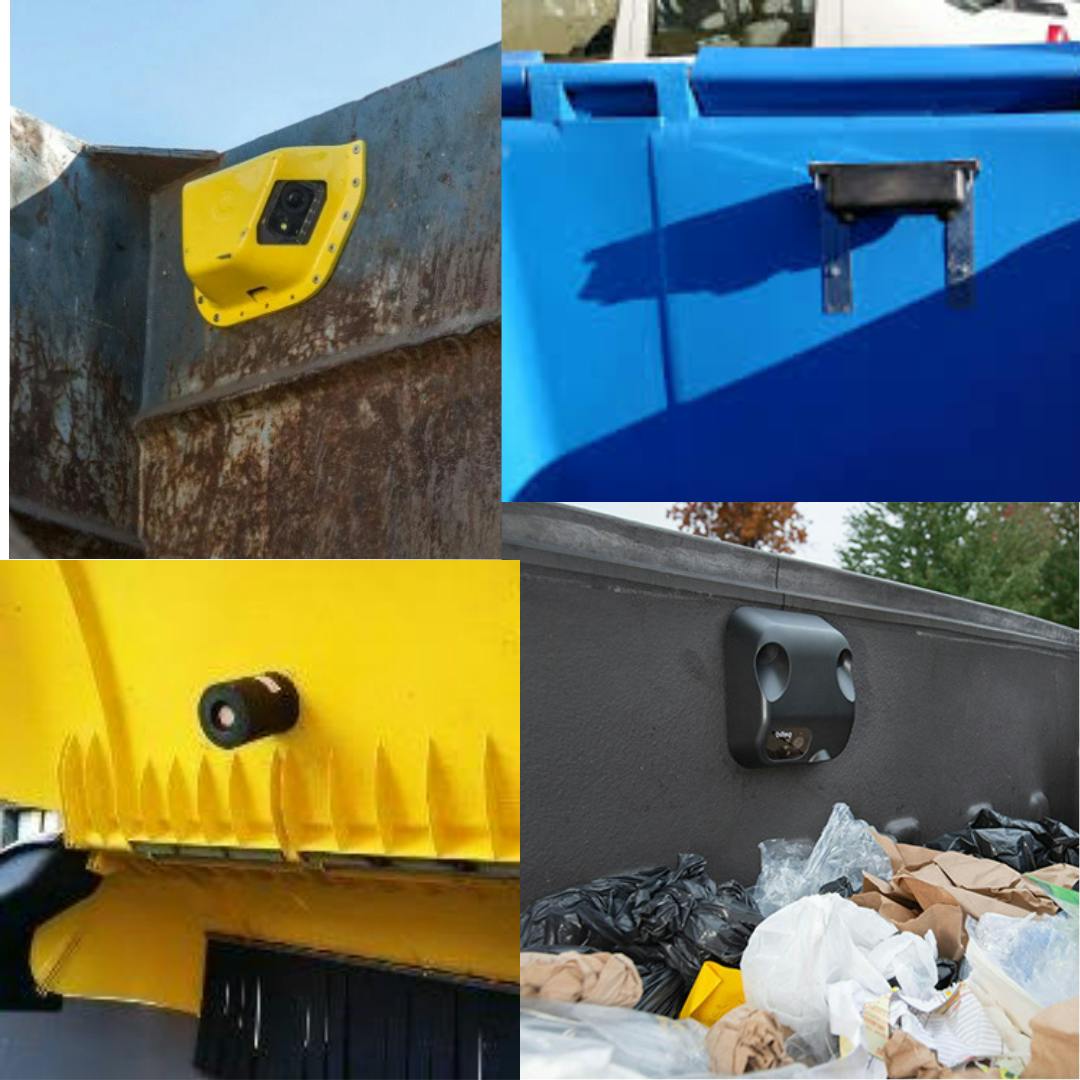 Waste Lever Sensors attached to bins
Waste Lever Sensors attached to bins
Recycling centres play an important role in reducing the amount of trash that ends up in landfills and waterways each year. However, due to a reduced workforce during the COVID-19 pandemic, many centres have struggled to keep up with demand. Fortunately, AI-powered recycling robots can help pick up some of the slack. These robots are designed to accurately identify and sort recyclable materials, increasing efficiency and reducing the need for human workers. This not only saves recycling centres money over time but also helps divert materials that would otherwise end up in landfills.
For example, Ecube Labs, an innovative green technology firm based in Seoul, Republic of Korea, that specialises in waste management technologies, developed a solar-powered trash compactor that can contain up to five times the amount of waste as standard trash cans. These devices compress waste as it accumulates, increasing its capacity. Recently, many smart recycling firms, such as ecoATM, took this concept a step further by developing a line of e-waste recycling kiosks that allow you to swap your devices for cash on the spot, similar to the popular "truck pushers" buying obsolete pieces of equipment with little value in return for cash in Nigeria. Though most do not always pay cash for broken or ruined items, many do accept phones, tablets, televisions, fans, music players, and other electronic devices and ensure they are properly recycled. This idea not only improves recycling but also provides a source of livelihood.
Many cities and countries have begun to apply these smart technologies, such as San Francisco with Recology, a recycling company that paid about $20 million to modernise its workspace with facilities and sorting robots to support and increase correct recycling. Songdo, South Korea, was one of the first cities to establish a truck-free waste management system by putting bins in every building and connecting them to a series of subterranean waste pipes: a pipe where trash flows through to a waste collection plant where it is sorted for recycling or utilised to generate electricity. This strategy not only reduced carbon emissions but also saved money. Amsterdam, Netherlands, one of the world's most environmentally concerned cities, updated smart waste management systems as part of its objective of reducing carbon emissions by 95% by 2050. In 2014, they installed a weighing mechanism and a fill level sensor in public trash cans. Researchers from MIT and the AMS Institute announced a potential technique to remove garbage in their canal in 2020. This entails the installation of floating dumpsters, which gather up rubbish and transport it through autonomous boats to a facility where it will be sorted and recycled.
CONCLUSION
According to demographic surveys and waste generation surveys conducted by the World Bank in 2012 Urban Development Series Publications, Nigeria creates roughly 43.2 million tonnes of waste yearly, and with the rise in population, Nigeria is rapidly developing to become the "Waste Capital of Africa." However, because trash is a resource in disguise, this issue can be turned into a benefit. Waste management has the ability to provide jobs, facilitate power generation, and contribute to economic diversification, all of which Nigeria desperately needs. There is no doubt that this is possible, as there are examples of countries I stated above that are already utilising their trash wisely.
Waste management's future begins and continues with technology advancements. To progress, the waste management sector, like any other, must become digitised and data-driven. The future is competitive and clever. Businesses, in particular, must be one step ahead of their competitors. Data is collected when smart waste management technologies are used over time. These data in hand sensors can be utilised to determine fill trends, optimise driver routes and schedules, and save operating expenses. The cost of these sensors is gradually reducing, making recycling technologies increasingly affordable to use and appealing to businesses and city authorities. Nigeria should not be left behind in these developments, as we generate more trash and the environment appears to be in utter chaos. We build a clean and safe environment for ourselves and develop sources of livelihood for people by employing and introducing these technologies. Including waste management courses in the school curriculum, creating a strategy and development plan to aid businesses in this aspect and regular seminars to educate individuals on waste management, these technologies, and how to successfully use them will be quite beneficial.
References
Badmus, Abbas. Tech Digest News, 30 June 2022, [techdigest.ng/digitalizing-nigeria-waste](“Digitalizing Nigeria’s Waste to Wealth - Tech Digest News.”)
K, Kabir. “Tech Startup to Reduce Environmental Pollution with Smart Waste Bins - PRNigeria News.” PRNigeria News, 18 Nov. 2021,[prnigeria.com/2021/11/18/tech-startup-reduc.. Startup to Reduce Environmental Pollution with Smart Waste Bins)
Pictures from Pixabay, Pinterest.
